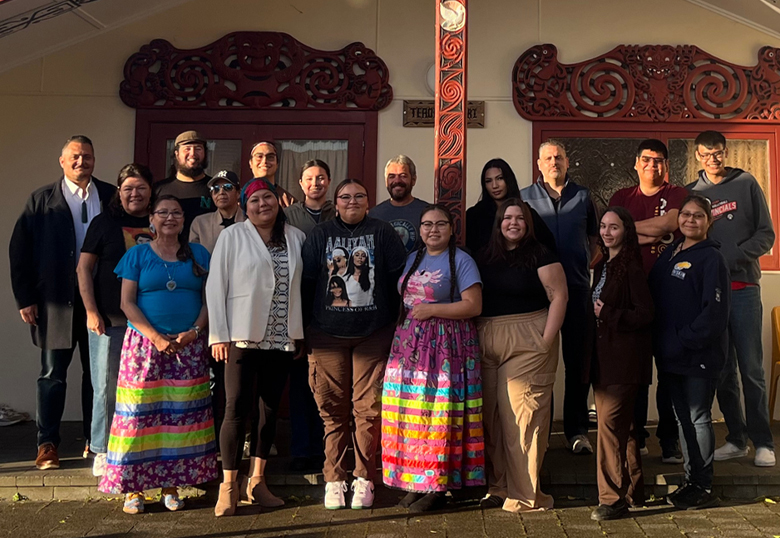A unique opportunity offered by the Dhillon School of Business at the University of Lethbridge allowed a group of Indigenous students to learn about and experience the culture, history and business practices of the Māori people in New Zealand.

Students completed a course called Introduction to Māori Culture and Business Practises before they embarked on a two-week study tour at the University of Waikato in Hamilton, New Zealand. Accompanying them were Rhonda Crow, ULethbridge Indigenous learning & program coordinator, and Rob Crow, director of economic development for the Blood Tribe, who co-instructed the ULethbridge course and was the lead instructor for the New Zealand portion.
In New Zealand, the students were joined by two Māori cultural guides from the University of Waikato. The itinerary included a traditional welcoming ceremony called a pōwhiri, a three-day Māori business student conference, educational workshops on topics like Indigenous business and Māori tourism, visits to sacred sites like a marae, a communal or sacred place that serves religious and social purposes, and participation in various cultural activities. They returned inspired and filled with ideas for the future of Indigenous peoples and businesses in Canada.
Many students commented on the similarities between the Māori colonization experience and the experience of Indigenous peoples in Canada.
“Their history was very similar to ours,” noted Levitt Maguire, a third-year student studying management. “When the Native Schools Act was first passed in 1867, the Māori kids were beaten at school for speaking in Māori.”
Reforms in New Zealand were finally made, with the abolition of that act in 1969. Then, in 1972, the Māori Language Petition called for recognizing their language, te reo Māori, in schools. In 1978, the first bilingual school in New Zealand opened and in 1985 the first Māori language immersive school opened. For Maguire, that type of progress was inspiring.
“That really opened my eyes to language revitalization,” he says. “I always wanted to learn Blackfoot in my school, but we never had the people."
The revitalization efforts of the Māori language also hit home with fourth-year political science major Chynell Shade.
"The language revitalization was amazing," Shade remarked, noting that te reo has become the dominant language in New Zealand over English.
In Canada, Shade says she believes a unified approach to teaching the Blackfoot language and using ancient words to create new words, as the Māori have done, will help connect her people back to their ancestors.
All the students said the connections they made with the Māori people will impact their lives going forward.
“I can say without a doubt that this has inspired me to be a better member of my community and to work hard to preserve, revitalize and amplify my Indigenous culture in the surrounding area, Canada and the world,” says Walker English, a kinesiology student. “I wish all Indigenous people could have this experience of connecting with Indigenous people around the world. I feel this way because we, as Indigenous people, are not alone in our struggles and our successes. We are family.”
